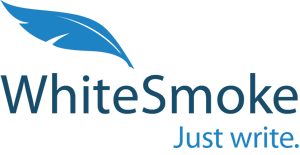Do Ricorse Potentially Able to Diminish Student’s Cognitive Learning Outcomes on Different Academic?
Abstract
Abstract: Learning outcomes are the students’ ability after receiving learning experience. In fact, there are gap in students’ cognitive learning outcomes. This gap can be minimized by learning model. The purpose of this research was to investigate the RICOSRE learning model potency in learning outcomes gap on different academic ability. The current study was design as a quasi-experiment with pre-test post-test non-equivalent control group design. Based on data analysis, RICOSRE learning model is able to improve cognitive learning outcomes, so, the students’ learning outcomes gap in school with different academic ability is getting closer.
Key Words: cognitive learning outcome, RICOSRE learning model, academic ability
Abstrak: Hasil belajar adalah kemampuan siswa setelah menerima pengalaman belajar. Faktanya masih terjadi kesenjangan hasil belajar kognitif siswa. Kesenjangan ini dapat diperkecil dengan model pembelajaran. Tujuan penelitian ini untuk mengetahui potensi model pembelajaran RICOSRE dalam mempersempit kesenjangan hasil belajar kognitif pada siswa dengan kemampuan akademik berbeda. Desain penelitian menggunakan kuasi ekperimen dengan pre-test-post-test non equivalen control group design. Berdasarkan analisis data, model pembelajaran RICOSRE mampu meningkatkan hasil belajar kognitif siswa dengan kemampuan akademik rendah dan tinggi, sehingga kesenjangan hasil belajar kognitif siswa pada sekolah dengan kemampuan akademik berbeda semakin kecil.
Kata kunci: hasil belajar kognitif, model pembelajaran RICOSRE, kemampuan akademik
Keywords
Full Text:
PDFReferences
Abidin, Y., Mulyati, T., & Yunansah. (2017). Pembelajaran literasi. Jakarta: Bumi aksara.
Tandogan, R. O., & Orhan, A. (2007). The effects of problem-based active learning in science education on students' academic achievement, attitude and concept learning. Online Submission, 3(1), 71–81.
Alias, M., Masek, A., & Salleh, H. H. (2015). Self, peer and teacher assessments in problem based learning: Are they in agreements? Procedia-Social and Behavioral Sciences, 204 (November 2014), 309–317. https://doi.org/10.1016/j.sbspro.2015.08.157.
Amirudin, M. ., Corebima, A. D., & Zubaidah, S. (2015, April). Minat baca dan hasil belajar kognitif peserta didik pada pembelajaran biologi berbasis reading-concept map. Seminar Nasional Pendidikan Biologi dengan tema “Edubiodiversity: Inspiring Education with Biodiversity (pp. 176–181). Universitas Ahmad Dahlan.
Anderson, L. W., & Krathwohl, D. R. (2015). Kerangka landasan untuk pembelajaran, pengajaran, dan asesmen revisi taksonomi pendidikan bloom. Terjemahan: Agung Prihantoro. Yogyakarta: Pustaka Pelajar.
Ar, A. A., & Katranc, Y. (2014). The opinions of primary mathematics student-teachers on problem-based learning method. Procedia-Social and Behavioral Sciences, 116(5), 1826–1831. https://doi.org/10.1016/j.sbspro.2014.01.478
Arends, R. (2012). Leraning to teach (Ninth Edition). New York: McGraw-Hill Companies.
Bahri, A. (2016). Strategi pembelajaran reading questioning and answering (RQA) pada perkuliahan fisiologi hewan untuk meningkatkan hasil belajar kognitif mahasiswa. Jurnal Bionature, 17(2), 107–114.
Celik, P., Onder, F., & Silay, I. (2011). The effects of problem-based learning on the students’ success in physics course. Procedia-Social and Behavioral Sciences, 28, 656–660. https://doi.org/10.1016/j.sbspro.2011.11.124.
Davis, A. (2004). The credentials of brain-based learning. Journal of Philosophy of Education, 38(1), 21–35. https://doi.org/10.1111/j.0309-8249.2004.00361.x.
Darmawan, E. (2017). Pengaruh penerapan model pembelajaran simas eric (skimming-mind mapping-questioning-exploring-writing-communicating) pada siswa berkemampuan akademik berbeda terhadap keterampilan metakognitif, berpikir kritis dan pemahaman konsep siswa SMA di Malang (Unpublished doctoral dissertation). Universitas Negeri Malang, Malang, Indonesia.
Fauzi, A., Corebima, A. D., & Zubaidah, S. (2013). Pengaruh kemampuan akademik terhadap keterampilan metakognitif, hasil belajar biologi, dan retensi siswa kelas X dengan penerapan strategi pembelajaran cooperative script di Malang (Unpublished undergraduate's thesis). Universitas Negeri Malang, Malang, Indonesia. doi: 10.13140/RG.2.2.24659.99363.
Hisham, N., & Chee, L. (2015). The example-problem-based learning model: Applying cognitive load theory. Procedia-Social and Behavioral Sciences, 195, 872–880. https://doi.org/10.1016/j.sbspro.2015.06. 366.
Kim, M. & Tan, C. D. (2012). Issues and challenges in science education research. New York: Springer.
Kurniawati, Z. L., Zubaidah, S., & Mahanal, S. (2015, November). Model pembelajaran Remap CS (Reading Concept Map Cooperative Script) untuk pemberdayaan keterampilan berpikir kritis siswa. In Proceeding Biology Education Conference: Biology, Science, Enviromental, and Learning (Vol. 13, No. 1, pp. 399–403).
Lin, L. (2015). The impact of problem-based learning on Chinese-speaking elementary school students’ English vocabulary learning and use. System, 55, 30–42. https://doi.org/10.1016/j.system.2015.08.004
Moss, B., Lapp, D., Grant, M., & Johnson, K. (2015). A close look at close reading: Teaching students to analyze complex texts, grades 6-12. Alexandria: ASCD.
Neuman, S. ., & Grambell, L. (2013). Quality reading instruction in the age of common care standarts. New York: International Reading Association.
Rosyida, F., Zubaidah, S., & Mahanal, S. (2016, November). Memberdayakan keterampilan berpikir kritis dengan model pembelajaran Remap TmPS (Reading Concept Map Timed Pair Share). In Proceeding Biology Education Conference: Biology, Science, Enviromental, and Learning (Vol. 13, No. 1, pp. 209–214).
Rusman. (2010). Model-model pembelajaran. Depok: RajaGrafindo.
Sani, R. . (2015). Pembelajaran scientific. Jakarta: Bumi aksara.
Sholihah, M., Zubaidah, S., & Mahanal, S. (2016, November). REMAP RT (Reading Concept Map Reciprocal Teaching) untuk Meningkatkan Keterampilan Berpikir Kritis Siswa. In Proceeding Biology Education Conference: Biology, Science, Environmental, and Learning (Vol. 13, No. 1, pp. 280–284).
Soekisno, B., Kusumah, Y., Sabandar, J., & Darhim, D. (2015). Using Problem-Based Learning to Improve College Students’ Mathematical Argumentation Skills. International Journal of Contemporary Educational Research, 2(2), 118–129.
Wang, M., Wu, B., Kirschner, P. A., & Spector, J. M. (2018). Using cognitive mapping to foster deeper learning with complex problems in a computer-based environment. Computers in Human Behavior, 87, 450–458.
Whimbey, A., Lohhead, J., & Ronald, N. (2013). Problem solving and comprehension. New York: Routledge.
Wijnia, L., Loyens, M. M., Derous, E., & Schmidt, H. G. (2016). University teacher judgments in problem-based learning: Their accuracy and reasoning. Teaching and Teacher Education, 59, 203–212. https://doi.org/10.1016/j.tate.2016.06.005.
Williams, J. C., & Paltridge, D. J. (2017). What we think we know about the tutor in problem-based learning. Health Professions Education, 3(1), 26–31. https://doi.org/10.1016/j.hpe.2016.05.001.
Wilson, A. A., & Chaves, K. (2014). Reading and representing across the content areas: A classroom guide. New York: Teachers College, Columbia University.
Yenilmez, A., Sungur, S., & Tekkaya, C. (2006). Students’ achievement in relation to reasoning ability, prior knowledge and gender. Research in Science & Technological Education, 24(1), 129–138. https://doi.org/10.1080/02635140500485498
DOI: http://dx.doi.org/10.17977/jps.v6i3.11792
Jurnal Pendidikan Sains Journal of Science Education Graduate School of Universitas Negeri Malang, Indonesia JPS is licensed under Creative Commons Attribution-ShareAlike 4.0 International License |







